Last night the BBC Consumer TV programme, Watchdog, had a pop at Microsoft and the XBox 360 over its reliability.
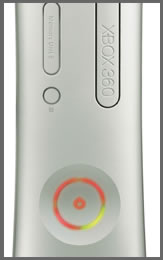 Many of the people who had purchased X360’s were finding that their machines were failing a short time after one-year warranty period had expired. The BBC say that 250 of them had contacted Watchdog to complain.
Many of the people who had purchased X360’s were finding that their machines were failing a short time after one-year warranty period had expired. The BBC say that 250 of them had contacted Watchdog to complain.
The most common cause of failure? The “Red ring of death” that indicates that their Xboxes have become Ex-boxes. The name comes from the front panel of the X360 which shows three flashing red lights, where normally there are green. If all of the lights but the first section are flashing, this indicates a general hardware failure has occurred.
When Xbox fan-boys contact Microsoft, they’ve been told that they have to shell out £80-85 to get their little dream machines fixed, as they out of warranty – even if it is just a little.
Many are attributing this failure to the machines running too hot. Anyone who has played the X360 will know that those babies run _loud_, due to the significant amount of fan-age they require to keep them running cool enough.
Microsoft have issued a statement, the first paragraph of which is
“The vast majority of Xbox 360 owners are having an outstanding experience with their systems. That being said, we have received a few isolated reports of consoles not working as expected. It’s important to note that there is no systemic issue with Xbox 360 – each incident is unique and these customer inquiries are being handled on a case-by-case basis.
The BBC are a little slow on the uptake with this as the problem has been debated on bulletin boards for a mighty long time. Having said that, getting it on broadcast TV is about the best thing that can happen in resolving these problem.
As is usually the case with this type of thing, people who have had their plight discussed, (not so) mysteriously get their machines replaced, after fighting with the companies for ages. A case in point is Alex Ainsow, who has now not only been offered a replacement console, but has had the deal sweetened with some new games.
Rumours of Xbox 360 ver 2.0 have been circulating, with one of the items being that the fan has been made much quieter. This would point to the chips having been reworked to get their operating temperature down.
Previously, Watchdog was fronted by Anne Robinson who later went on to present The Weakest Link. At that time, it struck us that Watchdog was the most aptly name programme on TV.
BBC Watchdog on Ring of Death
Microsoft: Xbox 360: Three red lights flash on the Ring of Light
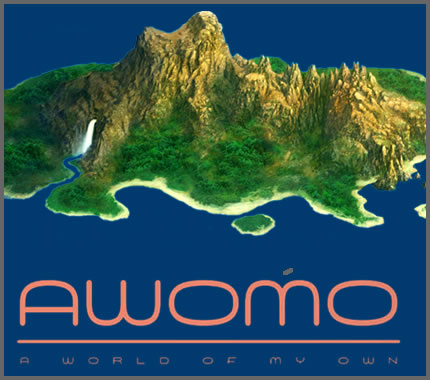
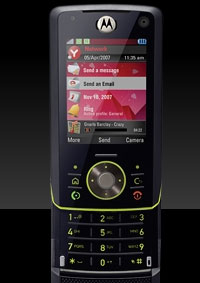 We reckon there could be moist spots breaking out in the gussets of mobile phone freaks everywhere with a veritable onslaught of new phones being announced today.
We reckon there could be moist spots breaking out in the gussets of mobile phone freaks everywhere with a veritable onslaught of new phones being announced today.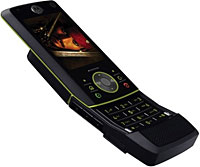 Decked out in a natty black body with green trim, the MOTORIZR Z8 features a 1.4 x 2-inch, QVGA 16 million colour display and a twin camera set up, with a 2 megapixel camera on the back (with 8x zoom and lumi LED light) and a lower spec’d VGA jobbie up front for video calls.
Decked out in a natty black body with green trim, the MOTORIZR Z8 features a 1.4 x 2-inch, QVGA 16 million colour display and a twin camera set up, with a 2 megapixel camera on the back (with 8x zoom and lumi LED light) and a lower spec’d VGA jobbie up front for video calls.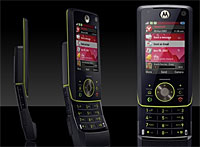 There’s also A2DP stereo Bluetooth audio onboard, support for SMS, EMS, MMS 1.22 messaging and SMTP, POP3, IMAP4, SSL/TLS2 email.
There’s also A2DP stereo Bluetooth audio onboard, support for SMS, EMS, MMS 1.22 messaging and SMTP, POP3, IMAP4, SSL/TLS2 email.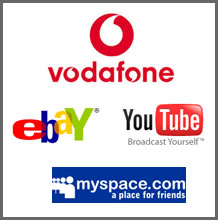 We thought it would be worthwhile taking a look as to why this might be happening and why it’s come at this time.
We thought it would be worthwhile taking a look as to why this might be happening and why it’s come at this time.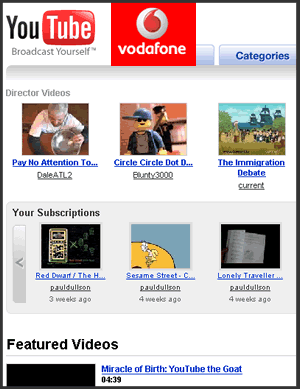 Is this now getting boring? Vodafone have announced another content access deal, this time with YouTube.
Is this now getting boring? Vodafone have announced another content access deal, this time with YouTube.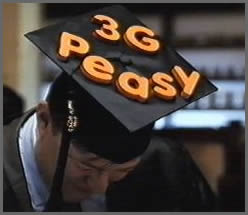 Currently Vodafone have a bigger network than Orange, so Orange would gain more than Vodafone from the deal, but in future it means that new cell sites will be used by both operators.
Currently Vodafone have a bigger network than Orange, so Orange would gain more than Vodafone from the deal, but in future it means that new cell sites will be used by both operators. Why the rush to build?
Why the rush to build?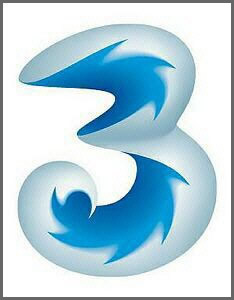 Though city centres might have a demand for 3G (for data services, no one cares about 3G voice – a voice call sounds the same whether it’s 3G or GSM), as you leave dense urban areas the appeal of 3G is less. Well maybe not less, but there are less people to use it and less of a reason for the networks to install 3G infrastructure and sites.
Though city centres might have a demand for 3G (for data services, no one cares about 3G voice – a voice call sounds the same whether it’s 3G or GSM), as you leave dense urban areas the appeal of 3G is less. Well maybe not less, but there are less people to use it and less of a reason for the networks to install 3G infrastructure and sites.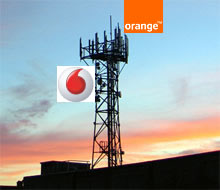 It’s all about their RANs – Radio Access Networks, which connect customers mobiles to the operators networks.
It’s all about their RANs – Radio Access Networks, which connect customers mobiles to the operators networks.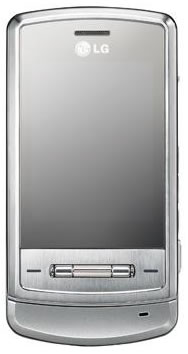 As I’m sure you’re aware it’s a looker … and you’ll not be surprised to hear that it’s shiny – mirrored in fact.
As I’m sure you’re aware it’s a looker … and you’ll not be surprised to hear that it’s shiny – mirrored in fact.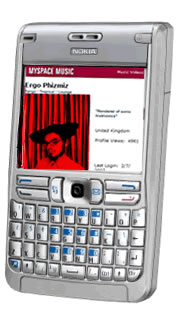 We think this is a pretty big story, so we’ve been chatting to Vodafone and Myspace to get further details and thought we’d fill you in.
We think this is a pretty big story, so we’ve been chatting to Vodafone and Myspace to get further details and thought we’d fill you in.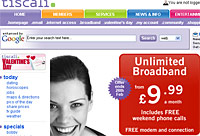 Tiscali has unveiled plans to launch a television service for its broadband subscribers, offering more than 30 digital channels and on-demand programming.
Tiscali has unveiled plans to launch a television service for its broadband subscribers, offering more than 30 digital channels and on-demand programming.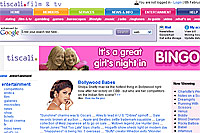 Commenting on their new offering, Mary Turner, chief executive Tiscali UK said, “The success of Freeview has shown that customers want more than five channels but don’t necessarily want to pay a high monthly subscription.”
Commenting on their new offering, Mary Turner, chief executive Tiscali UK said, “The success of Freeview has shown that customers want more than five channels but don’t necessarily want to pay a high monthly subscription.”